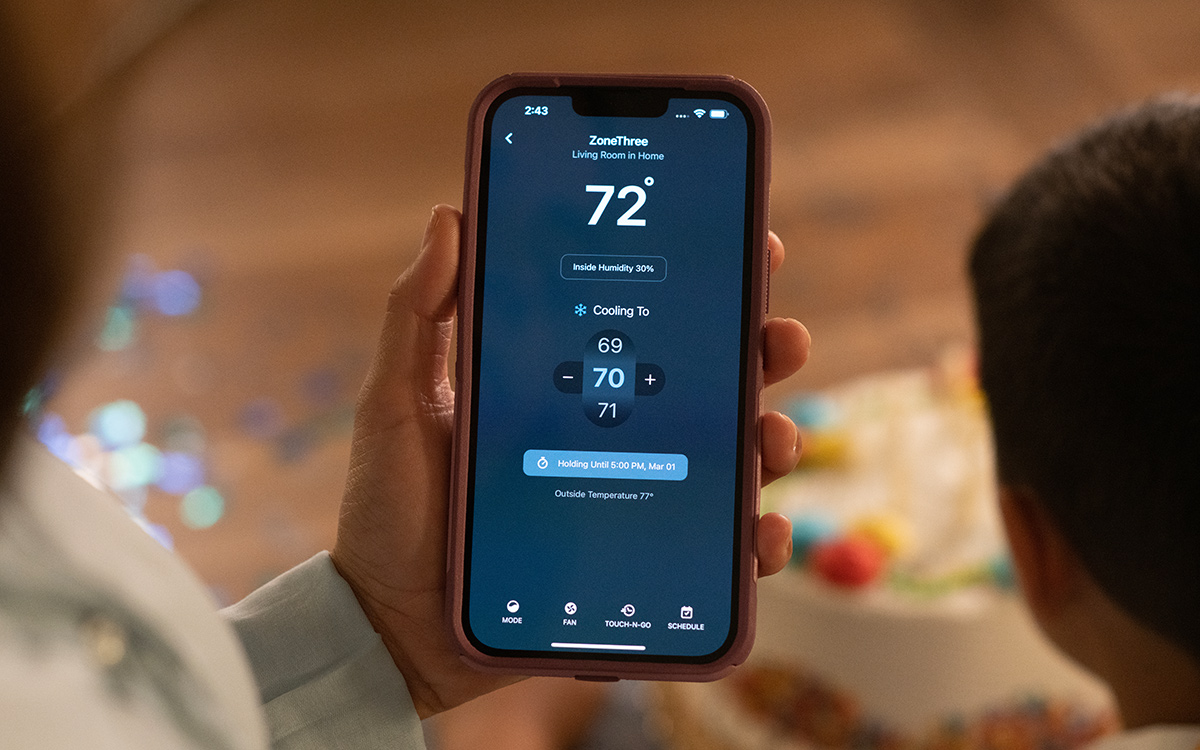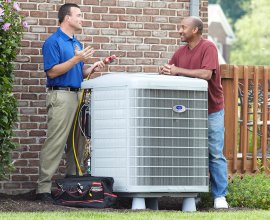
Winter in Pittsburgh brings cold temperatures, snowy landscapes, and a hidden culprit that can wreak havoc on your home and health: dry air.
You’re not alone if you’ve ever felt the sting of cracked skin, the annoyance of static electricity, or the discomfort of a scratchy throat during the colder months. These issues are often caused by low humidity, a common winter phenomenon. Fortunately, an easy solution can make your home more comfortable and your health more resilient—a humidifier for winter dry air.
Understanding winter dry air in Pittsburgh
The chilly months in Pittsburgh are notorious for their dry air, a result of natural climate changes and how we heat our homes. The air holds less moisture when there’s a temperature drop which can lead to lower humidity levels. In fact, during winter, Pittsburgh often experiences humidity levels far below the ideal range of 30-50%.
To make matters worse, central heating systems in homes actively strip even more moisture from the air. These systems may keep us warm, but they can also leave the air inside your home feeling desert-like. The result? Uncomfortable living conditions can have lasting effects on your health and property.
The Problems Caused by Dry Air
Dry air might seem harmless, but it can lead to a cascade of issues affecting you and your home.
1. Health Impacts
One of the most noticeable effects of dry air is its toll on your health. You might experience respiratory irritation, a dry throat, or nasal congestion. This isn’t just uncomfortable—it can also make you more vulnerable to colds and the flu. That’s because dry air dries out your mucous membranes, which are your body’s first line of defense against germs.
Skin problems are another common complaint. Without enough moisture in the air, your skin can become dry, cracked, and irritated. If you already deal with conditions like eczema, winter dry air could worsen these conditions.
2. Home Damage
Your home isn’t immune to the effects of dry air, either. Wooden furniture, flooring, and musical instruments can warp or crack in low humidity. You’ve probably also noticed an increase in static electricity during the winter—shocking your family members every time you touch them.
3. Comfort Issues
Perhaps the most immediate consequence of dry air is discomfort. Many Pittsburgh homeowners find it harder to sleep well during winter because dry air can cause a scratchy throat, itchy skin, or even nosebleeds.
Benefits of Using a Humidifier
A humidifier for winter dry air can make a world of difference. From improving your health to protecting your home, this small investment has big payoffs. These include:
1. Improves Health
A humidifier for winter dry air adds moisture back into the air, which can help maintain optimal respiratory function. They can ease nasal congestion, reduce throat irritation, and make it harder for viruses to thrive. Your skin will thank you, too—say goodbye to cracked hands and irritated faces!
2. Protects Your Home
By maintaining proper humidity levels, a humidifier can prevent wood from warping and electronics from becoming damaged by static electricity. Your furniture, floors, and even your houseplants will benefit from the added moisture.
3. Enhances Comfort
The right humidity levels make your home feel cozy and breathable. Plus, you’ll deal with less static electricity, which means no more unpleasant shocks every time you reach for the light switch.
Types of Humidifiers and Their Features
When choosing a humidifier for winter dry air, it’s important to understand the different types available.
- Cool mist humidifiers: Great for adding a refreshing coolness to the air, ideal for large spaces.
- Warm mist humidifiers: Use heated water to produce steam, which can also help kill bacteria.
- Ultrasonic humidifiers: Use vibrations to create a fine mist; they’re often quieter and energy-efficient.
When picking the right humidifier for your Pittsburgh home, consider the size of your space and how much noise you can tolerate. Some models are quieter, making them ideal for bedrooms, while others are better suited for large living areas.
Tips for Effective Humidifier Use
To get the most out of your humidifier, follow these practical tips:
- Place it wisely: Position the humidifier in the room where you spend the most time, like the living room or bedroom. Avoid placing it near electronics.
- Monitor humidity levels: Aim to keep your home’s humidity between 30-50%. Higher levels can encourage mold growth.
- Clean it regularly: To avoid mold or bacteria buildup, clean your humidifier every few days and change the water daily.
Frequently Asked Questions
Below are some commonly asked questions to consider:
1. What are the signs my home needs a humidifier?
A few signs that your home may benefit from a humidifier include wooden furniture or flooring showing slight changes, like small cracks or gaps, due to low humidity.
2. Can I use essential oils in my humidifier?
It depends on the model. Some humidifiers are designed to accommodate essential oils, while others can be damaged by them. Check your manufacturer’s instructions before adding anything to the water.
3. Do humidifiers work for allergies?
Yes! Maintaining proper humidity levels can reduce dust and allergens in the air, making it easier for allergy sufferers to breathe.
Homeowners in Pittsburgh should invest in a humidifier for winter dry air now
Don’t wait until you’re battling cracked skin and restless nights to invest in air purifiers and humidifiers for winter dry air. Preparing now ensures you’re ready for the harsh Pittsburgh winter ahead.
Humidifiers improve comfort and also help you save on energy bills. Proper humidity levels make the air feel warmer, so you can lower your thermostat without sacrificing comfort. Take action today, and make this winter your most comfortable yet!



